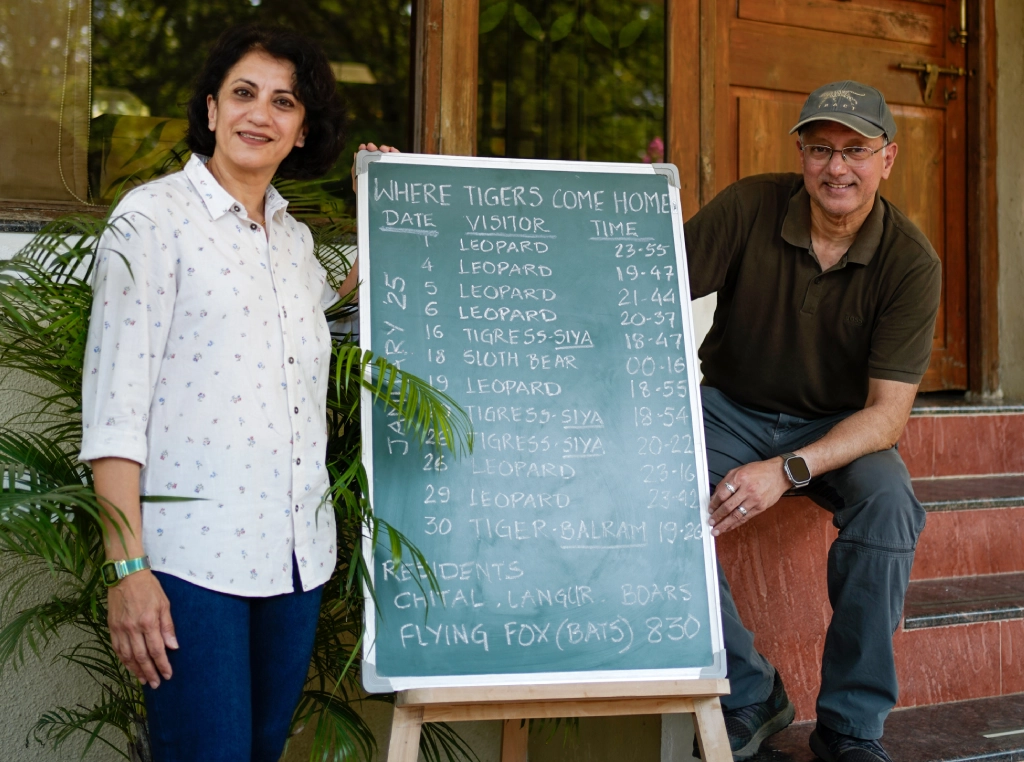Hotel Story
Founded by Poonam and Harshawardhan Dhanwatey, renowned wildlife conservationists with over 30 years of experience in Tadoba, tigress@ghosri represents their vision of forest rebirth through responsible tourism. The Dhanwateys transformed barren farmland into thriving wilderness, creating a unique model where conservation and hospitality flourish together.
Their approach centres on restoring degraded landscapes into forest ecosystems while empowering local communities as conservation stakeholders. Operating as an almost entirely unfenced property with a women-led, village-based workforce, the model ensures financial benefits and emotional connections to surrounding communities.
This boutique wildlife lodge features 6 thoughtfully designed rooms across two villas, accommodating up to 20 guests with air conditioning, ensuite bathrooms, Wi-Fi, and local touches. Using minimal land for facilities, the property maintains ecological harmony while offering maximum immersion. The infinity pool overlooks jungle terrain where tigers and leopards frequent nearby watering holes, observable through live camera feeds. Native plant landscaping supports local wildlife, while plastic-free policies and wastewater recycling demonstrate environmental commitment. Guests enjoy curated seasonal meals from locally sourced ingredients, guided jungle walks, wildlife photography, birdwatching, conservation talks with founders, machaan tree-hide viewing experiences, and boating tours. Home-style dining features handcrafted décor and local art, creating intimate conservation experiences where guests become active participants in rewilding efforts.









